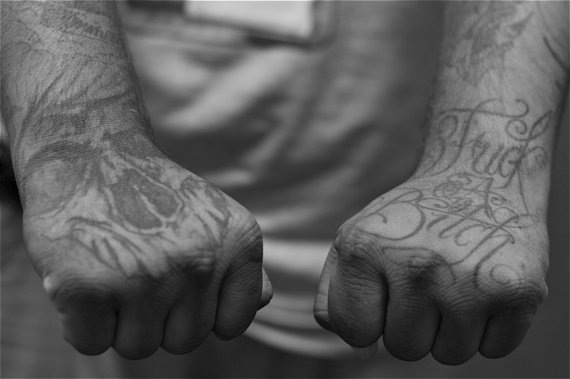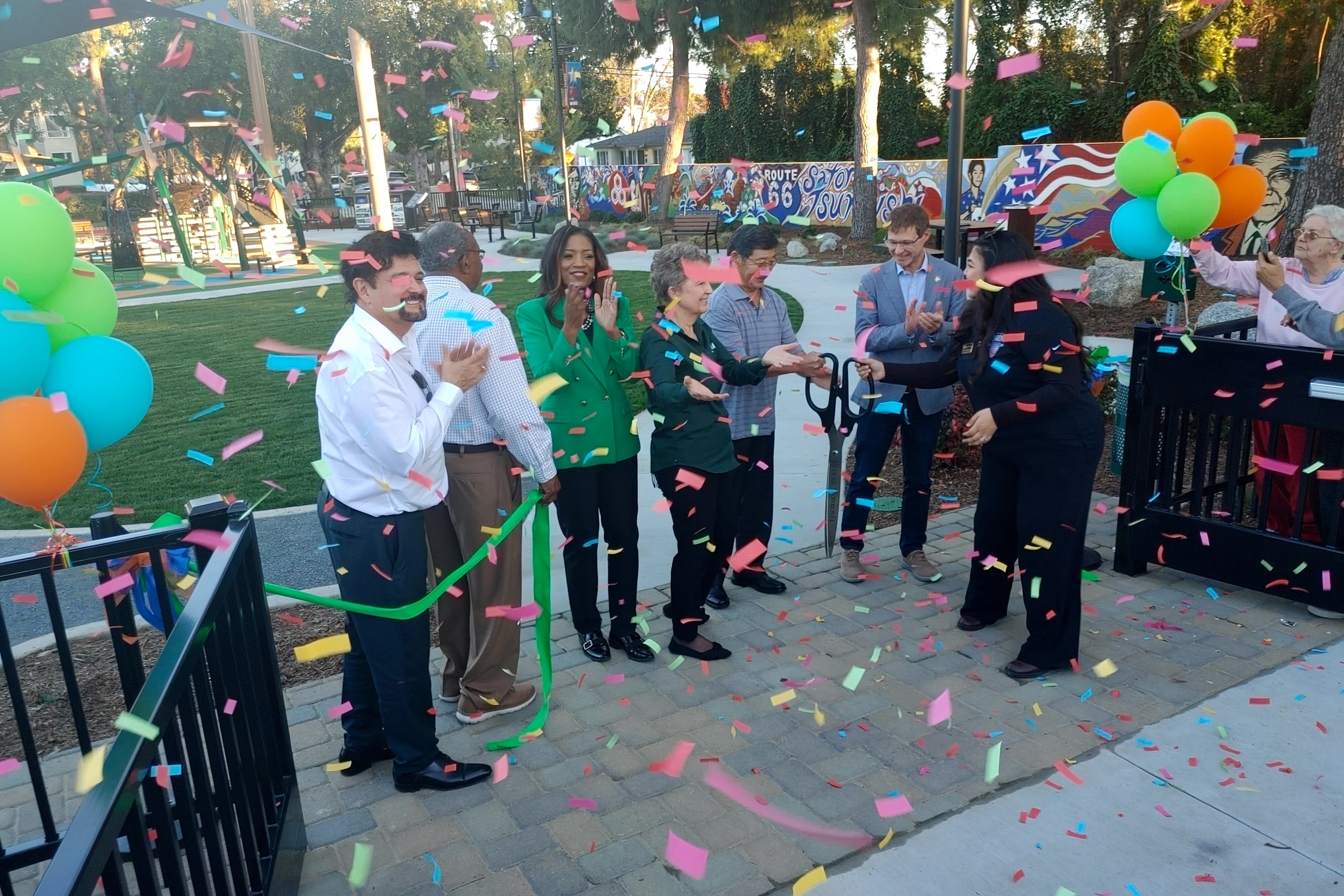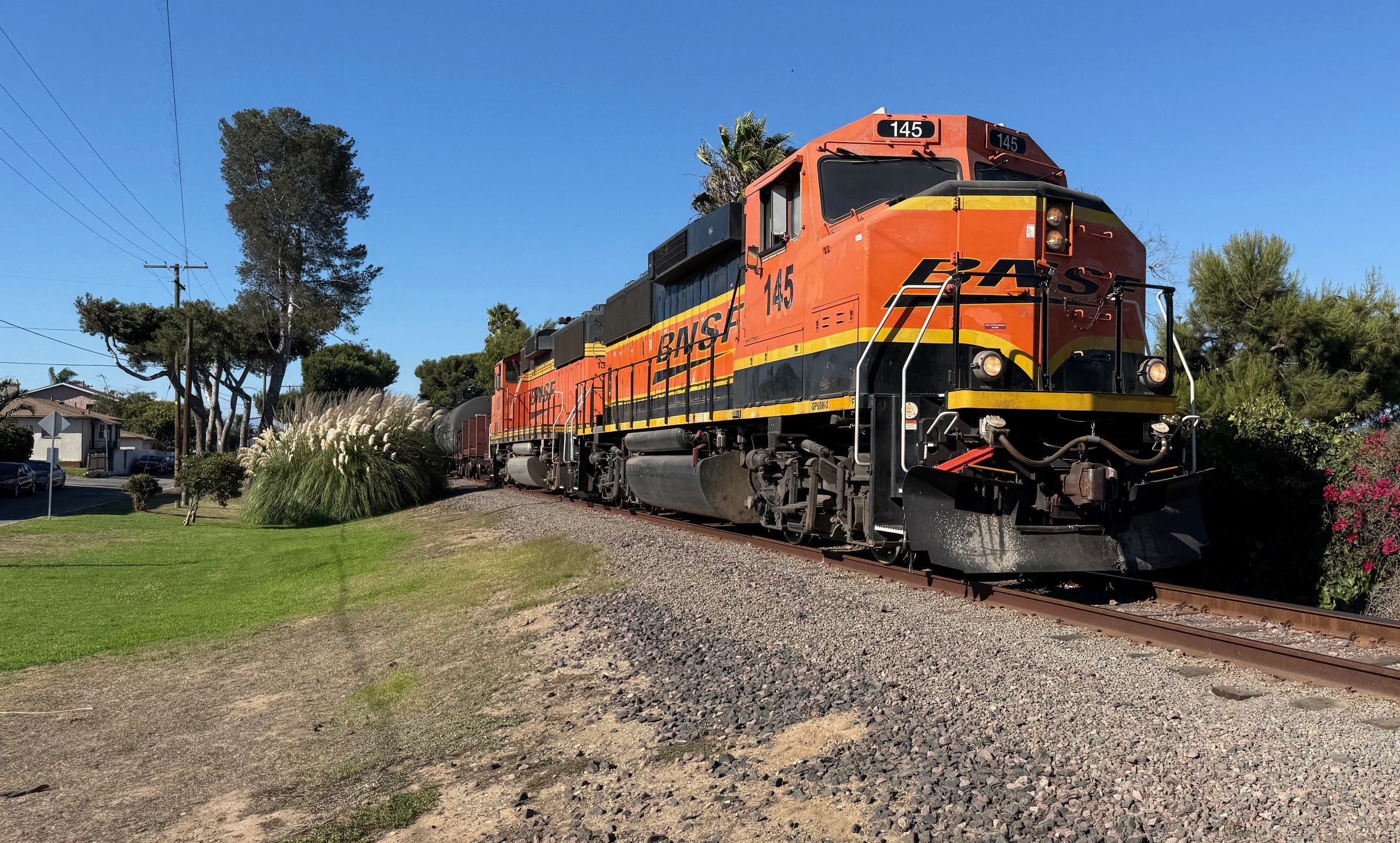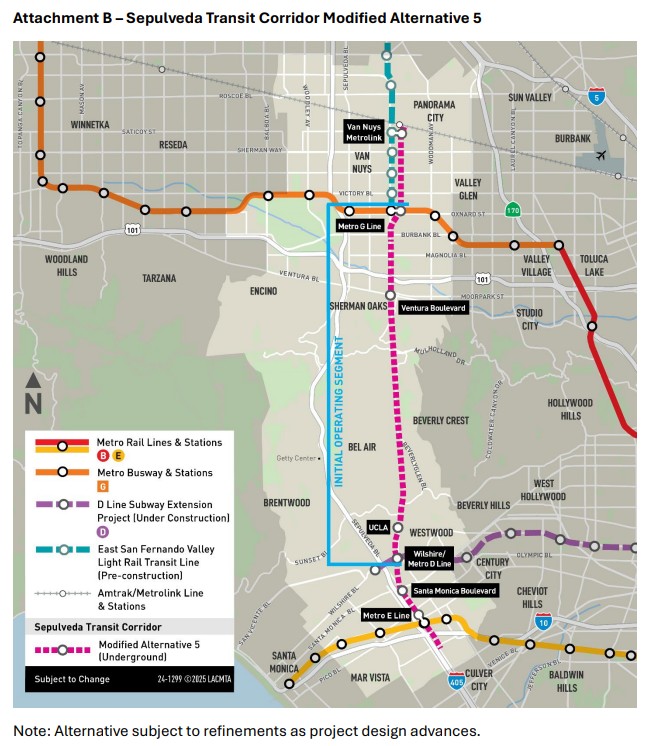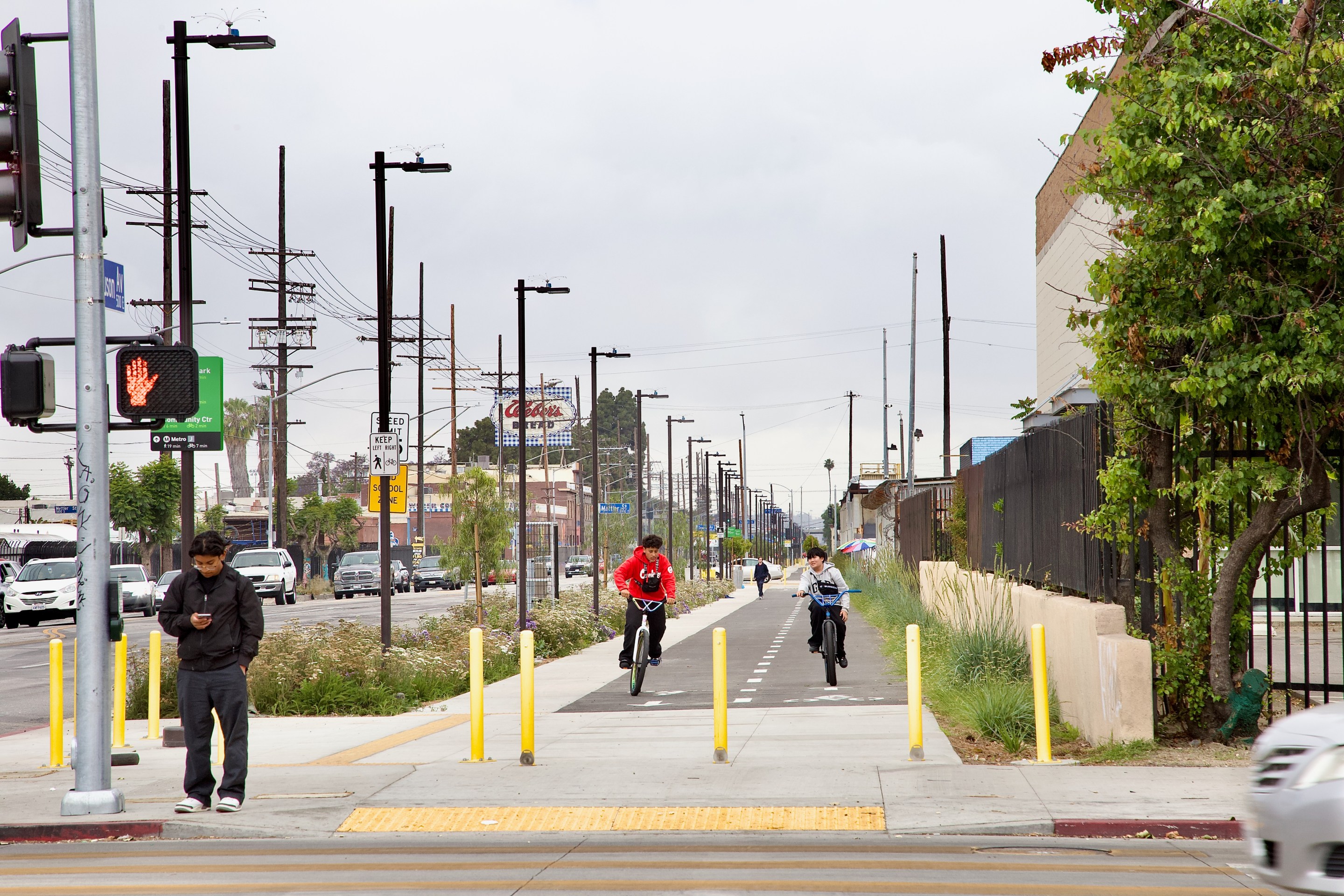*This story features interviews with a number of youth. Some are named. Others requested they remain anonymous due to the sensitive nature of the information divulged. This story is the second in a series on the impact of generational disenfranchisement and trauma and repressive policing. The first, "Death and All His Friends," can be found here.
AS WE CONCLUDE our conversation, he takes a deep breath, adjusts his belt, and asks – this time, I think, as a person and not a police officer – if I really believed kids in Watts didn’t have much choice about whether or not to get involved with gangs.
I have a sudden desire to pull out all my hair.
We had just spent the last forty-five minutes trading observations on the variety of factors that impact the safety, security, and mobility of kids in the area, all while seated next to a playground that – despite being situated in a housing development teeming with young children – is almost always empty, even on the most beautiful of summer afternoons. And even now, after an official community event that had drawn a sizable number outside just an hour earlier. No one lingers.
“That’s a tough question to answer,” I say slowly. He grew up not too far from here and I do not want to diminish the effort that I know he must have made to leave his own hardscrabble background behind. “Technically, they do have a choice…”
But, as I know he was well aware, I say, it isn’t easy.
Ticking off a list of everything we had just discussed – the drive-bys, violence in schools and the public space, various forms of abuse in the home, grooming by gang-bangers, profiling by law enforcement, intense poverty, generational trauma, the legacy of segregation, and a lack of exposure to positive environments – I suggest it’s an awful lot to expect an eight- or ten-year-old to transcend.
Even for those who do want something else for themselves, once they’ve started down a certain path, desisting, or walking away from gang life, can be extremely challenging.
Especially if they are still young.
Most can’t afford to move or find trying to navigate the politics of a new neighborhood to not be worth the risk. Staying where they are can be just as hazardous – they no longer have protection from former rivals who don’t know or don’t care that they’re out or from former homies that feel disrespected and want to settle scores.
Without a strong support system, job, and/or educational program they can lean on, they’re in danger of getting sucked back in. Or worse.
“The odds,” I say to the officer, throwing my hands wide, “are not in their favor.”
“I Was Just a Kid. I Didn’t Know What Was Happening.”
“Middle school is when everything changed,” says Delfino, a shy but friendly and thoughtful young man finishing his high school degree at a continuation school in Watts.
From the very first day, he says, he was acutely aware that there were a lot of gang members at his school (which held grades 5 through 9) because they enjoyed picking on him.
“They would always ask me, ‘Where you from?’”
He pauses.
“I didn’t know the meaning of that,” he laughs, as if he still can’t believe he had once been so innocent.
I can’t believe it, either.
He had grown up around 92nd St., an area where gang activity is prevalent and his solid build should have made him a prime recruit.
The kid who was harassing him apparently also thought Delfino was bluffing because he got annoyed and asked, “You wanna catch my fade?”
“He threw the first punch and I snapped,” says Delfino.
The way he describes it, stepping through the doors at school was like being dropped into the modern-day, high-stakes version of Lord of the Flies.
“After that day,” he says, “I started noticing everything…”
He didn’t have much choice.
His survival depended upon his ability to relearn the rules of human interaction, the primary tenets of which appeared to include trusting no one and always being on guard.
This became clear to him when he realized that, by having accidentally made an enemy out of his bully, he would now have to contend with all of the homies that were part of the bully’s clique. Every time he crossed paths with any one of them, he would need to be prepared to fight, even if he didn’t know them and had no personal beef with them.
Worse still, he says with a shrug, there was nowhere to run.
Teachers and counselors knew kids fought, but they were either powerless to help or uninterested in doing so.
“I thought, ‘In order to survive, I’ve got to join something…’”
So he linked up with another homie that had been trying to recruit him for a crew.
“It wasn’t a gang,” he emphasizes several times – they weren’t known outside the middle school.
They did have numbers, however. Which meant that a rival would now think twice about messing with him.
It was such a relief, he says, to not have to worry about fighting all the time.
That is, until the leaders of his crew threatened to “check” him for not “putting in work” and, at one point, to see that he was “dealt with” if he didn’t do the work he was assigned.
Protection, he suddenly realized, was going to cost him.
“To me, it didn’t make sense,” he laughs. “I was just a kid. I didn’t know what was happening.”
But he was learning.
What Do We Talk About When We Talk About Gangs?
When we think about gang membership, we tend to conceptualize it as a clear-cut thing, almost like joining the military: one day you’re a civilian, the next day you’ve signed up for a tour of duty, been given a dress code, a haircut, and a weapon, and been sent for training in the arts of war somewhat apart from your civilian home base.
Rather than joining up because you value honor, valor, and country, however, you have made the conscious choice to swear allegiance to the twisted code of ethics of a criminal organization that seeks to destroy the social fabric of our urban centers.
If that were the way things actually worked, the gang problem would be much easier to deal with.
Instead, gangs (and their many incarnations) are complex social networks whose roots are deeply intertwined with those of the communities and socio-economic environments they call home.
Not unlike the military, they offer youth a surrogate family, something to belong to, someone to watch their back, and something to fight for.
But they also offer so much more – the promise of a social circle, the possibility of controlling what would otherwise control them, an outlet for frustration or revenge, and a name, status, and “juice” (respect). Respect, in particular, is a highly coveted commodity for kids that feel beat down or oppressed by circumstance. If they can prove themselves worthy of being feared, people will be less likely to mess with them just for the hell of it.
Moreover, by the time a kid is ready to get officially jumped, courted, or sexed in, it isn’t because they went looking for a recruiter.
Usually, they come looking for you.
Sometimes they come in the form of family members, as in the case of one young man who was (unwillingly) jumped in at age 12 by his relatives, the shot-callers for a Latino gang.
Other times, neglect pushes kids over the edge, as in the case of another young man, orphaned at age 10, who was taken in by an irresponsible uncle. When the uncle would head off to Tijuana and leave him behind, alone and without food, he wasn’t in a position to say no to gang members who fed him in exchange for hiding their drugs under his tongue. Hungry, lonely, and eager to please, his destiny was sealed before he hit puberty.
More commonly, the combination of push factors and people who actively encourage them to join up can be such constant and persistent companions that joining up is nothing more than a formality. An inevitable next step.
In these cases, the kids will often tell you it was their “choice.”
They might even say, as Whisper – who, at age 9 was courted in by 13 guys – did, “I don’t know. Something told me, like, get in it, or something... ‘Cause at that time you don’t care. You’re stupid and you do whatever. You follow someone else.”
But there’s always more to the story.
It usually begins with a flatly delivered, “I been through a lot” – the closest to admitting pain that most will come – that indicates that you should take a seat and brace yourself for what you are about to hear.
For Nico, it was having seen his mother abandoned by his father when he was 5 and later beat up by her boyfriend, having relatives involved in gang life, getting jumped in sixth grade and having to fend for himself in his first real fight, wanting respect in a neighborhood with intense gang activity, and having a lot of unresolved anger. Having folks around him that steered him in the wrong direction, including homies that handed him a gun so he could go attempt his first armed robbery at age 11, didn’t help much, either.
For William, it was fighting and running with crews since middle school, an absentee/alcoholic father, a brother who was also involved in that life, and the fact that his high school’s social structure revolved around gangs, with kids being beat up in the stairwells between classes and each of the lunch tables being controlled by a different gang. It was also having seen so many bodies torn open by bullets or knives just lying in the street -- he realized he had become numb to it by the time he hit his early teens.
“I would look at the victim and I would see him suffering and I wouldn’t feel nothing. I would see him crying and I wouldn’t feel no emotion,” he says, sounding confused by his own reaction. “I don’t know what the fuck was wrong with me.”
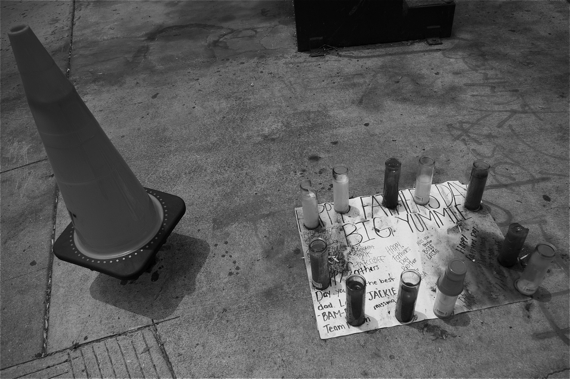
Whisper’s case is more of the same. But, she insists, things could have been worse for her.
“I have a lot of homegirls that’s been raped and stuff by their own dads and that’s why they get into gangs. Because they think it’s better.”
“Better” is a relative term, of course, as initiations for girls can mean being “sexed in” by a dozen homies, getting roped into violent relationships, and/or having to go extra hard to earn respect once they’re in.
She, herself, was never raped, but she apparently had a close call one night when she was beat up by a bunch of guys she didn’t know somewhere in East L.A. She was found in the trunk of a car and feared dead, the nurse told her when she woke up in the hospital.
“It was tragic for me,” she shrugs.
Her soft and pretty face gives little away, but she has the aura of a seasoned flamenco dancer – the kind that has lived several lifetimes’ worth of heartbreak and is poised to come at you at a moment’s notice, arms flailing, spitting fire.
From the time she was very small, she had hung around a number of older “big homegirls that used to gang-bang a lot…[that taught her]…how to get down, how to do things…”
The homegirls were a happier alternative to her life at home where, she says, “My mom has never helped me. My mom and dad have never given me love. I hardly hug [them]. I have just kissed them [maybe] 7 times,” she explains.
The discord at home occasionally pushed her out into the streets, where she would shelter under a bridge or at bus stops.
“When you are by yourself, you get all your anger out. But flashbacks come to you and you start crying.”
Seeing kids get beat up by their parents was another trigger.
“I get flashbacks from that. But I’m not traumatized…” she says, shrugging this off, too, albeit rather unconvincingly. “[It’s] like they jump you or something but you didn’t know… For me, it’s like nothing.”
But that's clearly not true -- it's anything but "nothing" for her.
Her past traumas manifest in anger issues and a constant readiness to fight at the slightest hint of disrespect or threat. And having lost faith in her parents at an early age, she is wary of trusting them -- or anyone, really -- and seems to do her best to keep them at arms' length from her heart.
“When I see my mom crying for me, I can’t hug her,” she says of her mother’s attempt to make amends for past neglect. “I’m like. ‘If you never gave me your love, I don’t need it right now…’Sorry’ for me is just words. Give love to your other daughter.’”
“My uncles ask me why I don’t like her. Let’s put it like this…” the now sixteen-year-old says as she looks off into the distance.
Her face hardens and her eyes narrow as she turns her gaze back to me.
“I want to depend on my own.”
“I Never Wanted This”
“Man, I never wanted this,” Delfino remembers telling a dean at his school.
It is the first time I hear his voice break.
The crack in the façade – offering a just a hint of the abyss of hurt that lies beneath it – is raw and unexpected.
“It was the first time I ever said that [out loud],” he says of the confession to one of the few people he felt he could trust with his story back then.
Even though his crew had dissolved after middle school and he was essentially back to being a civilian, the gang culture around him in high school had only intensified, and older youth were constantly singling him out and goading him to fight.
Troubled by memories of the things he had been involved in and unable to carve out the space to piece himself back together, Delfino had finally reached a breaking point.
“I felt trapped,” he says quietly. “I felt like that was going to be my life forever.”
He’s not alone in feeling that way.
A lot of youth who got into gangs knew certain things might be required of them and that it would be intense. And they accepted those terms because they believed that what they got in exchange would be worth the cost.
What they didn’t seem to have any concept of was the longer-term toll it would take on their emotional well-being and sense of self, or what that would mean for their ability to walk away from that life, physically or mentally.
The reason?
Most active gang members don’t talk about their emotions or how they really feel about what they are doing. Not with friends. Not with family. Certainly not with each other.
And what good would it do to tell new recruits you’re no longer comfortable unless you’re standing with your back to a wall because you’re always afraid someone might sneak up behind you? Or that you do coke or meth to stay up all night to watch the sun rise because you always fear it might be your last? They wouldn’t understand until they experienced it themselves, and it would just make you look weak. Which would be a problem.
“Gang culture is always, ‘Show no weakness,’” says William, an imposing but sweet and funny teen with a teddy-bear disposition. “You gotta be strong. You gotta man up. Don’t cry.”
It’s also a “do or die” environment, he continues. When you get asked to do something, “you either do it, or [that homie’s] gonna take your life.”
“Did that scare you?” I ask.
“Yeah,” he nods. “It did, but I kept it to myself.”
When they would go out to do missions, he says, they would often party afterwards in order to forget.
But he was never able to forget about all the carnage he had witnessed. Especially when he was home alone and had time to think.
Only 16 at the time, he says, “I always thought about this – sooner or later that’s going to be me laying on the ground [dead].”
Nico, the burly and tatted-up lothario whose quick smile masks a short fuse, echoes those sentiments a little more bluntly.
After regaling me with a tale of how he cheated death by hiding under a pick-up truck when chased through Huntington Park by rivals that threw a beer bottle at his head, pulled a gun on him, and then cruised up and down the streets looking for him, he nods and concludes solemnly, “I been through a lot.”
“Fools chasing me, the homies getting killed, the Sheriffs getting the homies [referencing a cousin he saw killed by the Sheriffs]… And all that shit made me think: if I keep acting like the homies that just died, I’m going to get my ass killed.”
It’s a refrain that pushes many to think about leaving that life behind.
But even as they are first formulating these fears and questioning their choices, it is often only beginning to dawn on them just how much trouble they are in.
For one young man – newly jumped in and packed into a car with several older homies one night – that realization came when he was ordered to “shoot that fool on the corner.”
It was a rival, he assumed, but it was someone he didn’t know.
When the homies made it clear it was either him or the guy on the corner, he reluctantly stuck his hand out the window. An older homie helped him steady the gun and aim.
“Damn, did I just do that??” he asked himself as he watched the man on the corner go down.
“It was a shock to me,” he says. One that made him start to cry right there in the car. Until the homie railed at him for being a little bitch and he realized he had to pretend not to care if he was going to survive.
When Whisper was 12, she says, a senior homie told her, “You gotta kill this person.”
They threatened to kill her when she refused.
Defiant, she told them, “You can kill me; I don’t care.”
“And then one of my friends got mad,” she says.
What transpired next comes out in a jumble: “I don’t know what happened, ‘cause when I turned, he [the homie giving orders] was dead. I just turned and one of my other friends had killed him. He got something like a knife and cut him right here” she makes a slitting motion across her neck, “and then shot him. But I didn’t hear [the shot] because of the gun that he used.”
“When I saw him dead, I got scared and I started running, crying. And I was like, ‘Damn…’ ‘Cause [my friend] got mad ‘cause [the senior homie] was forcing me to do something I didn’t want to. And I thank him… Like, I coulda died… He coulda died…”
She sighs and gives a slight shrug.
“Since then, I never saw [that friend] again. I heard he’s dead, too.”
Survivors’ Guilt: “I Feel Proud…But Not So Proud”
It’s not all bad.
It can’t be.
Otherwise nobody would bother to stick around, right?
“The thing I like[d] about gang-banging was the family structure,” says William. “We protect[ed] our own.”
If somebody from their clique got jumped, they’d rally the troops, “Let’s go, let’s go!” and together, they’d right whatever wrong they believed they’d incurred.
It felt good, he says, to know that big homies would be there to back him up.
For others, the adrenaline rush that came with outsmarting the cops – like managing to sneak all the contraband out the back of a stash house while someone stalled the officers out front – was part of the fun.
Many enjoyed the power and status that came along with gang-banging.
Whisper, for example, liked having surrogate mothers to watch over her but seemed to really prize rising quickly through the ranks of her female clique at such a young age.
Others liked being able to walk into a store within their territory and demand a tax or free stuff.
The power that comes with status can be intoxicating for those that spent most of their youth dodging blows.
“I had respect,” Nico says of the days he ruled his high school.
“[The security guards] used to open the gates [for me]. I used to walk through, tell ‘em, ‘Man, you know what? Open the gate.’ They open the gate, I walk out.”
There would be no sneaking out or climbing over fences like some regular fool for him.
The security guards also kept him updated when he was fighting, telling him, “Hey I’ll give you, like, five minutes, man, ‘cause, you know…like, the cops gonna walk through.”
Sometimes, he says, they held his stash for him when the cops searched the school with canines.
I am inclined to be skeptical of this.
Then, I remember that security guards are often young guys from the community who are not so far removed from Nico’s experience. I almost don’t need to ask what’s in it for them.
“Brownie points, man,” he replies, almost gleeful. “Fools would just hold my shit just to get their little juice.”
“The streets talk. And when the streets talk, they could talk either positive or just bad. But me, it was just positive…I’m just pretty much known.”
Teachers had heard about him and gave him free reign to do what he wanted, he says. One even used him to send a warning to a problem student when she felt threatened.
When a history teacher made the mistake of “disrespecting” him by calling him out for, as best I can tell, not doing his work, he says he slammed the teacher on the desk, “So, you haven’t heard about me, huh?” and threatened to catch him slipping in the street.
Instead of reporting him, he says, the teacher later apologized for being out of line and gave him an “A.”
“I used to have people pay me just to say that they were my cousins or they were related to me,” Nico smiles. “‘Cause if they say that no one will fuck with them. That’s protection.”
Lest I think he was taking advantage of anyone, he adds, “I’m only stepping up for my people. I’m not the one doing the fights…I just help others.”
By his “people,” he means Latinos – usually recent immigrants.
In some sectors of Watts, black-brown tension can run high, and recent immigrants are often targets for bullying and harassment. So he would post up near where they played soccer or were hanging out in order to let others know to back off.
“Respect,” he concludes with a laugh. “Having respect outside and inside, you know, gets you good things.”
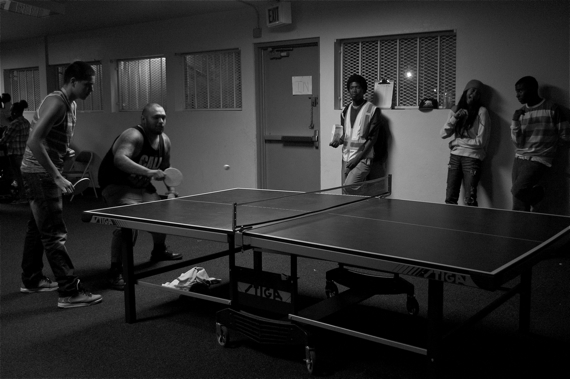
For all the good things he claims “respect” brought him, the intermittent rush of being a dominant fish in an intensely competitive pond was obviously not enough. Something pushed him to make the difficult decision to leave that world and the tenuous comfort it offered behind.
When asked about regrets, however, he suddenly clams up and prefers to stay in the present.
“No lie, I regret fucking up because I woulda had my high school diploma by now,” he says.
I nod.
I know that there is much, much more to his decision to get out than that.
There always is.
But voicing it risks breaking the seal on the virtual Pandora’s box of trauma, stress, exhaustion, self-loathing, fear, and pain that so many of these youth struggle desperately to keep the lid on. Nico’s clearly not ready to go there.
Neither are the others I speak with.
And it’s a terrible thing to behold.
Few things are more tragic than watching youth engaged in herculean wrestling matches with demons they now have custody of but which are not fully of their own making. More often than not, they end up shutting down any sort of emotional response and speaking in a carefully measured monotone that makes them seem almost indifferent to their own pain or that which they inflicted on others.
William can only offer a quiet and conflicted, “I feel proud…but at the same time, not so proud. Because I did a lot of shit that I didn’t want to do…But I had to do it to get my respect.”
And Delfino, who is more visibly torn about his past but unable to take it back, says haltingly, “I don’t think what I did was bad [in that] I did what I had to do to survive.”
I don’t know what other answers I could have expected.
They, like most everyone I’ve interviewed, feel that they grew up in the equivalent of a war zone. Looking back on lost childhoods, they are not sure what other path they could have taken. There’s no easy way they can separate out the decisions they made as teens from the ones made at age 8 or 10 or 12, when they had few options open to them and none of them were good.
After having lost so many neighbors, classmates, friends, and family members to the streets, they are just relieved to have made it out to the other side. Asking if they have regrets is, to them, akin to being asked if they feel guilty about being alive.
It’s a question they don’t know how to begin to answer.
The closest they can come is to say, as Nico finally does, “I wanna go back in time and listen to my mom.”
"Something About the Streets Changes Your Mentality"
It is now late afternoon back in the housing development. The officer I was speaking to earlier is long gone. The older youth and veteran gang members are beginning to emerge from their apartments -- it’s a weekend night and there is work to be put in.
They are also eyeing me warily.
Most of them know me, at least by sight, and have for some time. But they have just watched me sit and talk to a police officer for forty-five minutes and they are wondering if I can still be trusted.
I approach a veteran I know and stick out my hand. “I met you this summer, right?”
When I first met Martin (not his real name) a few months earlier, we had talked about sitting down and doing an interview about what it was like to grow up in such an environment. He had a lot to say, he had told me then, and he wanted a better future for the youth.
But then things had heated up.
A rival gang had driven through the development and shot it up in the middle of the day. Tensions between rivals from some of the other developments had started to boil over and, overnight, almost all of the African-American young men had vanished from Watts’ streets - Martin included. We never got to have that sit-down.
I tell Martin that the officer and I had been talking about the insecurity of public spaces and the circumstances that push kids to make the choices they do.
He nods.
That officer was not one that residents particularly cared for, he informs me.
Then he pauses, takes a drag on his cigarette, shakes his head, and asks me if I think that trying to help people understand the struggles of people in Watts is really going to make much of a difference. Things have been this way for so long, he says, that he doesn’t anticipate things changing for the better any time soon.
And even if they did, he’s not sure it would matter.
“It’s too late for me,” he says simply.
Too late for him to learn to trust people. Too late to undo damage that’s been done or bring back lost homies. Too late to believe that there’s something else out there. Too late to hope that someone might take a chance on someone like him or see him as anything other than a gang-banger. It’s even too late to believe in himself – to think that he would ever be capable of being more than what he was right now.
He doesn’t sound bitter, though. Just resigned.
Like everyone interviewed here, he had spent his most formative years – the years kids ideally spend discovering who they are and who they want to be – fighting for survival, doing his best to put up a strong façade, conforming to the strict code of the streets, and just trying to make it through the day.
There hadn’t been a lot of time or energy left over to spend on personal development. And nothing around him seemed to indicate there was much of a future out there waiting for him.
It’s an environment that changes you, Delfino had told me once.
“People say you grow up with this [street] mentality. No…” he shook his head, adamant. “It’s about the streets. Something about the streets changes your mentality.”
Who you are as a person when you are at home or work is one thing, he had explained. But when you grow up in a community where gangs are prevalent, you have to adopt a hardened persona every time you walk out your door.
“In the street, it’s like you’re this person that feels [constantly] paranoid. When you’re walking down the street to the store, you become paranoid. If you don’t [stay on guard], all these people around you, they’re gonna put you down. And you’re gonna stay down.”
“You have to grow up fast. If you don’t change, you have no hope of surviving out there.”
That change comes at a cost.
“I used to be so serious,” he had mused. “I wouldn’t joke around…[or] waste words. I was a dark person. I felt like I was a dark person…Nothing was a game to me.”
Worse still, he began to lose sight of who he felt he was. In his heart, he knew that he didn’t want to be a paranoid, aggressive guy, but it had become clear to him that “that [street] personality and fear, they control you.”
“I was confused and I started thinking of myself as a bad person. I used to think that anything bad that’s gonna come to me, I deserve it. Now that it’s over, I kinda feel relief. But, at the same time, that mentality stays with you. I’m tryna be good, but the past always follows.”
William had had a similar experience, “I used to be dogging people [all the time], 'Where you from?'”
It was exhausting.
“What’s the whole point of being aggressive? Nobody’s gonna wanna talk to you. I think differently now. I think twice. I think about consequences. I’m not that gangster fool I used to be. I just wanna be myself, a nice fool with good intentions.”
Easy as being a “nice fool with good intentions” might sound, I can see how much some of these youth struggle to start over. They still have deep doubts about their own self-worth, fights they can’t escape, unhealthy home environments they still endure, cops who still see them as trouble, people around them still getting hurt or killed, memories that haunt them in the quiet moments, and all of these negative behaviors they have to unlearn but few people around to help teach them more positive ones.
If it is so hard for a nineteen-year-old to start fresh, I can’t imagine where someone like Martin would begin - this life is all he’s known for thirty-plus years.
“It’s a fair question," I tell him. "It’s not like I’m telling stories people haven’t heard, or shouldn't have heard by now... And you’re right – things around here are incredibly slow to change. But it doesn’t mean these stories shouldn’t be told. There are good things happening here, and good people who want to get their stories out...”
He nods again. But he knows that I know that he is right.
As he told me when we first met, until residents see things done differently, folks like him can’t waste time and energy getting their hopes up for something better. It’s too hard – they’ve been disappointed too many times.
“They [politicians and authorities] say money is so scarce, yet and still, they have money for all these cameras,” he had pointed up towards the surveillance cameras that line the streets in the development.
“They figure we’re not supposed to know the difference,” he had said, dismayed that they would invest in surveillance rather than opening the development’s shuttered community center or having recreational programs for kids.
“They don’t understand," he said, quoting Tupac, "we have roses that grow out of concrete.”
* * * *
Sahra Sulaiman produced this story while participating in The California Endowment Health Journalism Fellowship, a program of USC’s Annenberg School of Journalism. This is the second of a six-part series exploring the effects of chronic community violence in the public space on the health and well-being of the community of Watts, how and why those effects can constrain the ability of young people to transcend their circumstances, and some of the approaches different agencies and community-based organizations have taken to try to bring positive change to the area. The entire series will eventually be available here.
